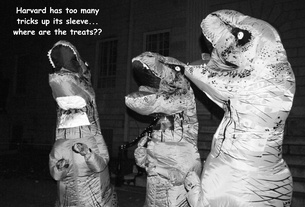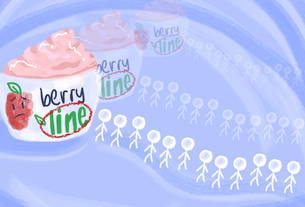Contributing opinion writer
Nour L. Khachemoune
Nour L. Khachemoune ‘22-‘23 is a joint concentrator in Chemistry and Anthropology in Dunster House. Her column “Nostalgia: What’s it Hiding” appears on alternate Thursdays.
Latest Content
What Nostalgia’s Hiding
Children’s media does not contain more insidious messages than the rest of our society. They are simply easier to note when delivered by smiling cartoons. To resist the needling messages hidden in children’s media, we must reframe the way we think about our world from every angle.
The Mystery of American Escapism in ‘Nancy Drew’
The capitalism of American society idealizes a difficult working life in exchange for its fixation on the simple pleasures of meals and clothing. The minimalist descriptions of Nancy Drew create a caricature of what people wished life could be in the 1930s. What more is there to desire in life besides meals, clothing, and the arduous work it apparently takes to make them possible? I can think of a few things, but perhaps the children reading the Nancy Drew series 90 years later will begin to believe that’s all life is about.
Servers of Colonialism in ‘Cyberchase’
Colonialism extends to multiple cultures that the creators have chosen to profile as “others” for our entertainment. The show is so clever in the way it plays with words and fantastical settings, but real-life cultures are not settings that can be played with to further a narrative. The end of each episode features a non-animated segment called “Cyberchase For Real.” Perhaps the show’s creators should stick to depictions of cultures “for real,” and not promote cultural stereotypes in children’s media.
‘Casein’ Point: The Hidden Messages of ‘Geronimo Stilton’
Literary references may intentionally whet children’s appetites for classics and the world around them in a subtle way, or may simply be included for sport. But there is no doubt that they are significant and serve to prove that wording and references to the outside world can have deep implications for children.
“Junie B. Jones” and the Stupid Smelly Stifling
We don’t have to envy Junie B. because she reminds us of a simpler age of life, when we too could be completely true to ourselves and challenge the often nonsense rules adults expect us to obey. We can learn from her instead, and encourage children and adults alike to be deliberate in everything we do and speak our minds.
Engines of Capitalism in “Thomas and Friends”
The intentional messaging of the show is standard, encouraging children to work together and find creative solutions to problems. But underlying it all is the same message that we face every day from every facet of our society: the capitalist pressure to work for revenue above all else. By the end of the story, the narrator smugly informs us that Henry has learned the best way to deal with feeling unwell is to ask his driver to stop and wipe him down only “when the day’s work is over,” when he has satisfied the controller. I think he deserves more than that, don’t you?
The Real Price of the Snack Thief in “Diary of a Wimpy Kid”
“Diary of a Wimpy Kid” is iconic and timeless—Greg could be any kid from your school, or maybe even you. The relationship he has with food, and the way it is elevated to a forbidden commodity that he constantly pursues could also be many of us. It’s a surprisingly large part of the way Greg is, and perhaps forms just as large a part of why he is so relatable and fascinating to us. He often puts thoughts to words that many youngsters never would, or at least would never admit to. It is his diary, after all.




